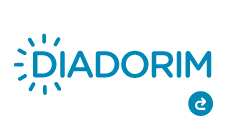Genes relacionados à Síndrome de Li-Fraumeni: uma revisão
Resumo
Introdução: As síndromes de câncer hereditário têm em comum mutações em genes-chave que podem ser transmitidas de geração em geração. A Síndrome de Li-Fraumeni é uma das mais representativas da classe, mas apresenta uma grande heterogeneidade e diversidade de tumores. Apesar do gene TP53 ser o mais estudado em relação à etiologia da síndrome, é muito importante conhecer outros genes relacionados com vias de predisposição específicas, bem como as principais mutações que os afetam. Objetivos: O objetivo desta revisão é identificar biomarcadores que participam na gênese e desenvolvimento da síndrome de Li-Fraumeni, através da análise de artigos científicos sobre os genes envolvidos na síndrome. Além disso, realizar um levantamento das principais mutações do gene TP53. Métodos: Foram realizadas buscas de artigos no banco de dados Pubmed, de acordo com os critérios de inclusão e exclusão, utilizando palavras-chave específicas. Inicialmente, a triagem foi realizada pela leitura dos títulos e resumos e, posteriormente, dos textos na íntegra. Resultados: Após a triagem, foram incluídos 17 artigos para integrar a revisão, dos quais 6 versam sobre estudos de câncer da mama e genes relacionados com a síndrome, 9 sobre genes potenciais e 2 sobre o apoio social às famílias. Conclusões: O gene TP53 continua a ser referido como o principal gene relacionado com a síndrome, sendo a mutação R337H a mais prevalente. Com o levantamento de estudos efetuado nesta revisão, conclui-se que existem vários genes relacionados com a síndrome de Li-Fraumeni e diferentes mutações no TP53, de acordo com a diversidade de cânceres acometidos. Vários outros genes apresentam potenciais correlações com a síndrome, dentre eles CHEK2, ATRX, BRCA1, BRCA2, ERCC3 e PTEN, podendo no futuro compor painéis de rastreio para uma melhor identificação das famílias e dos indivíduos em risco.
Downloads
Referências
Li FP, Fraumeni JF Jr. Soft-tissue sarcomas, breast cancer, and other neoplasms. A familial syndrome? Ann Intern Med. 1969, 71(4):747-52.
Malkin D, Li PF, Strong. CL, Jr. Fraumeni. FJ, Kim HD, Kassel J, Gryca AM, et al. Germ line p53 mutations in a familial syndrome of breast cancer, sarcomas, and other neoplasms. Science 1990, 250(4985):1233-8.
Li P F, Jr Fraumeni F J Mulvihill JJ, Blattner AW, Dreyfus G M, Tucker A M, Miller W R. A cancer family syndrome in twenty-four kindreds.Cancer Res 1998, 48(18): 5358-62.
Kratz, CP, Freycon, C, Maxwell KN, Nichols KE, Schiffman JD, Evans DG, et al. Analysis of the Li-Fraumeni Spectrum Based on an International Germline TP53 Variant Data Set . An International Agency for Research on Cancer TP53 Database Analysis. JAMA Oncology, 2021. 7(12):1800-5.
de Andrade KC, Mirabello L, Stewart DR et al. Higher-than-expected population prevalence of potentially pathogenic germline TP53 variants in individuals unselected for cancer history. Hum Mutat, 2017 38:1723–30.
Palmero EI, Schüler-Faccini L, Caleffi M, Achatz MI, Olivier M, Martel-Planche G, et al. Detection of R337H, a TP53 germinative mutation predisposing to multiple cancers, in asymptomatic women participating in a breast cancer tracking program in Brazil. Cancer Lett 2008, 261:21-25.
Achatz MIW, Oliveira M, Le Calvez F, Martel- Planche G, Oliveira A, Rossi B M, Ashton- Prolla P, et al. The TP53 mutation, R337H, is associated with Li-Fraumeni and Li-fraumeni-like syndromes in Brazilian families. Cancer Lett 2007, 245(1-2): 96-102.
Samadder J N, Johnson RD, Boardiman L, Rhodes D, Wich M, Okuno S. Comparison of universal genetic testing vs guideline- directed targeted testing for patients with hereditary cancer syndrome. JAMA Oncol 2021, 7: 230- 237.
Tsaousis N G, Papadopoulou E, Apessos A, Agiannitopoulos K, Pepe G, K S et al. Analysis of hereditary cancer syndromes by using a panel of genes, novel and multiple pathogenic mutations. BMC Cancer 2019, 19(1):535.
Weitzel N J, Chao C E, Nehoray B et al. Somatic TP53 variants frequently confound germ-line testing results. Genet Med. 2018, 20(8): 809-16.
Blazer R Kathllen, Nehoray Bita, Solomon Ilana, Swiller Niell Mariana, Culvier O Julie, Uman C Gwen, et al. Next-Generation Testing for Cancer Risk: Perceptions, Experiences, and Needs Among Early Adopters in Community Healthcare Settings. Genetic testins and molecular biomakers, 2015,19(12):657-65.
Slavin P T, Coffee B, Bernhisel R, Logan J, Cox C H, Marcucci G, Weitzel J, Neuhausen L S, et al. Prevalence and characteristics of likely-somatic variants in cancer susceptibility genes among individuals who had hereditary pan-cancer panel testing. Cancer Genet 2019, (31-38): 235-6.
Escudeiro C, Pinto C, Vieira J, Peixoto A, Pinto A, Pinheiro M, Santos C, Guerra J et al. The role of TP53 pathogenic variants in early-onset HER2-positive breast cancer. Familial cancer 2021, 20(3):173-180.
Park Ji-Hoon , Lie Jin, Starost F Matthew , Liu Chengyu, Zhuang Jie, Chen Jichun, Achatz I Maeia, Kang Gyeong Ju et al. Mouse Homolog of the Human TP53 R337H Mutation Reveals Its Role in Tumorigenesis. Cancer Res 2018, 78(18):5375-83.
Fitarelli-Kiehl M, Giacomazzi J, Santos-Silva P, Graudenz MS, Palmero EI, Michelli RA, et al. The breast cancer immunophenotype of TP53-p.R337H carriers is different from that observed among other pathogenic TP53 mutation carriers. Familial câncer 2015, 14(2):333-6.
Penkert J, Schmidt G, Hofmann W, Schubert S, Schieck M, Auber B, Ripperger T. et al. Breast cancer patients suggestive of Li-Fraumeni syndrome: mutational spectrum, candidate genes, and unexplained heredity. Breast Cancer Res 2018, 20(1):20- 87.
Andrade RC, Dos Santos AC, de Aguirre Neto JC, Nevado J, Lapunzina P, Vargas FR. TP53 and CDKN1A mutation analysis in families with Li-Fraumeni and Li-Fraumeni like syndromes. Familial Cancer 2017, 16(2):243-8.
Akouchekian M, Hemati S, Jafari D, Jalilian N, Dehghan Manshadi M. Does PTEN gene mutation play any role in Li-Fraumeni syndrome. Medical Journal 2016, 30: 378.
Nordfors K, Haapasalo J, Afyounian E, Tuominen J, Annala M, Häyrynen S, et al. Whole-exome sequencing identifies germline mutation in TP53 and ATRX in a child with genomically aberrant AT/RT and her mother with anaplastic astrocytoma. Cold Spring Harbor molecular case studies 2018, 4(2): 1- 13.
van de Beek I, Glykofridis IE, Wagner A, den Toom DT, Bongers EMHF, van Leenders GJLH, et al. Combined germline pathogenic variants in FLCN and TP53 are associated with early onset renal cell carcinoma and brain tumors. Mol Gene Gen. 2022,11(2):1- 10.
Yao Zhixing, Sherif A Zaki.The effect of epigenetic silencing and TP53 mutation on the expression of DLL4 in human cancer stem disorder. Oncotarget 2016 7(39): 62976-88.
Phang BH, Othman R, Bougeard G, Chia RH, Frebourg T, Tang CL, et al. Amino-terminal p53 mutations lead to expression of apoptosis proficient p47 and prognosticate better survival, but predispose to tumorigenesis. Proceedings of the National Academy of Sciences of the United States OF America 2015, 112(46): 6349-58.
Macedo GS, Vieira IA, Vianna FSL, Alemar B, Giacomazzi J, Brandalize APC, et al. p53 signaling pathway polymorphisms, cancer risk and tumor phenotype in tp53 R33H mutation carriers. Fam Cancer. 2018, 17(12):269-74.
Krzesniak M, Butkiewichz D ,Rachtan J, Matuszczyk I, Grzbowska E M R, et al. A novel germline TP53 mutation p.Pro190Arg detected in a patient with lung and bilateral breast cancers. Advances In Medical Sciences 2017, 62(2):207-210.
Franceski S, Spugnesi L, Aretini P, Lessa F, Scarpita R, Gali A, et al. Whole-exome analysis of a Li-Fraumeni family trio with a novel TP53 PRD mutation and anticipation profile. Carcinogenesis 2017, 38(9):938-943.
Lin W, Young L J, Wilsnack C, Merrill L S, et al. Waiting and "overloaded": the challenge of early loss for individuals and families with Li-Fraumeni Syndrome. Fam Cancer 2020,19 (3):259-268.
Peters JA, Kenen R, Bremer R, Givens S, Savage SA, Mai PL. Easing the Burden: Describing the Role of Social, Emotional and Spiritual Support in Research Families with Li-Fraumeni Syndrome. Journal of Genetic 2016, 25(3): 529-42.
Ercoskun P, Kahraman Y, Cigdem, OG,Tatar A. Genetic Characterization of Hereditary Cancer Syndromes Based on Targeted Next-Generation Sequencing. Molecular syndromology 2021, 13(2):123–131.
Valentin DM, Nakken S, Tubeuf H, Vodak D, Olaf P, Nissen M A, et al. ally pathogenic germline CHEK2 among several early-onset cancer families. Familial cancer 2018, 17(1):141-53.
Birch JM, Hartley AL, Tricker KJ, et al. Prevalence and diversity of constitucional mutations in the p53 gene among 21 Li- Fraumeni families. Cancer Res 1994, 54(5): 1298- 304.
Eeles RA. Germline mutations in the Tp53 gene. Cancer Surv 1995, 25:101-24.
Chompret A, Abel A, Stoppa- Lyonnet D, et al. Sensitivity and predictive value of criteria for pr3 germline mutation screening. J Med Genet 2001, 38(1):43-7.
Malkin D. Li-fraumeni syndrome. Genes Cancer. 2011, 2(4):475-84.
Bamshad M J, Ng B Sarah, Bigham, W Abigali, Tabor, K Holly, Emond, J Mary, Nickerson, A Deborah, Shendure, jay. Exome sequencing as a tool for Mendelian disease gene discovery. Nature reviews genetics 2011, 12(11): 745-55.
Tabori U, Nanda S, Druker, H, Lees, Jodi, Malkin, D.Younger age of cancer initiation is associated with shorter telomere length in Li-Fraumeni syndrome. Cancer Research 2007, 67(4):1415-8.
Ragezi AJ, Jarbo J R Regev E, Pisanty S, Gazit D Silverman. p53 protein expression in sequential biopsies of oral dysplasias and in situ carcinomas. J of Oral Pathol and Med, 1995, 18-22.
Chang F, Syrjänen S, Kurvinen K, Syrjänen K. The p53 tumor suppressor gene as a common cellular target in human carcinogenesis. Am J Gastroenterol. 1993, 88(2):174-86.
Hainaut P, Hollstein, M. p53 and human cancer: the first ten thousand mutations.Science 2000, 77:87-137.
McBride A Kate, Ballinger L Mandy, Killick Emma, Kirk judy, Tattersall, Eeles A Rosalind, Thomas M David, Mitchell Gillian. Li fraumeni syndrome: cancer risk assessment and clinical management. Rev Clin Oncol, 2014; 11(5):260-71.
Cipriano NM Jr, de Brito AM, de Oliveira ES, de Faria FC, Lemos S, Rodrigues NA, et al. Mutation screening of TP53, CHEK2 and BRCA genes in patients at high risk for hereditary breast and ovarian cancer (HBOC) in Brazil. Breast Cancer, 2019, 26:397–405.
Samadder NJ, Riegert-Johnson D, Boardman L, Rhodes D, Wick M, Okuno S. Comparison of universal genetic testing vs guideline-directed targeted testing for patients with hereditary cancer syndrome. JAMA Oncol 2021, 7: 230-7.
Hedenfalk I, Duggan D, Chen y, Radmacher M, Bittner M, Simon R, Meltzer T, et al. Gene-expression profiles in hereditary breast cancer. Journal of Medicine 2001, 22;344(8):539-4.
Sorlie T, Perou M C, Tibshirani, Aas T, Johnsen H, Hastie T, Eisen B M et al. Genes expression patterns of breast carcinomas distinguish tumor subclasses with clinical implications. Proc Natl Acad Sci U. S. A 2001, 98(19):10869-74.
Masciari S, Larsso N, Senz J, Boyd N, Kaurah P, Kandel JM, Harris, N L, Pinheiro C H. Germline E- cadherin mutations in familial lobular breast cancer. Journal of Medical Genetics 2007, 44(11): 726-31.
Bertrandt MA, Bojadzieva J, Ready J K, Obeid E, Liu D D, Litton k J, et al. Early onset HER2-positive breast cancer is associated with germline TP53 mutations. ACS Journals 2012, 118(4): 908-13.
Lu R, Zhao X, Li J, Niu P, Yang B, Wu H, et al. Genomic characterisation and epidemiology of 2019 novel coronavirus: implications for virus origins and receptor binding. The Lancet (London), 395(10224 2020): 565-574.
Merkenschlager M, Odom DT. CTCF and cohesin: Linking gene regulatory elements with their targets. Cell 2013, 152: 1285–97.
DECLARAÇÃO DE ORIGINALIDADE E DIREITOS AUTORAIS
Declaro que o presente artigo é original, não tendo sido submetido à publicação em qualquer outro periódico nacional ou internacional, quer seja em parte ou em sua totalidade.
Os direitos autorais pertencem exclusivamente aos autores. Os direitos de licenciamento utilizados pelo periódico é a licença Creative Commons Attribution 4.0 (CC BY ): são permitidos o acompartilhamento (cópia e distribuição do material em qualqer meio ou formato) e adaptação (remix, transformação e criação de material a partir do conteúdo assim licenciado para quaisquer fins, inclusive comerciais.

Recomenda-se a leitura desse link para maiores informações sobre o tema: fornecimento de créditos e referências de forma correta, entre outros detalhes cruciais para uso adequado do material licenciado.

















